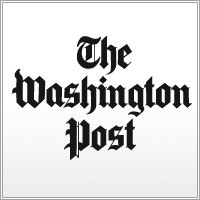Reprint from The Washington Post
The whole thing would be laughable, a real thigh-slapper, if the danger weren’t so real.
The Trump Organization, led by arch First Amendment foe Donald Trump, has worked out a traffic arrangement with the D.C. government that one free-speech advocacy group, the Partnership for Civil Justice Fund, fears will allow for the stifling of speech and assembly in proximity to the historic Old Post Office Building, which Trump has leased from the feds for use as a Trump International Hotel.
This is the same Donald Trump, who, as depicted in the partnership’s lawsuit against the city, “called for protesters to be ‘roughed up’ and ‘carried out on a stretcher,’ offered to pay the legal fees of persons who assault protesters, deployed security who have assaulted protesters and destroyed protest signs outside the Trump Tower on Fifth Avenue in New York City, suggested he would be in favor of ‘closing’ the internet under certain circumstances, indicated that he would like to rewrite libel laws to suppress unflattering press coverage, and revoked press credentials from The Washington Post, The Huffington Post, Buzzfeed, Univision, The Daily Beast, the Des Moines Register and Politico.”
Why the concern?
The D.C. Department of Transportation has approved a vehicle-access lane for valet parking service at the hotel’s entrance on Pennsylvania Avenue, the historic national thoroughfare running between the White House and the Capitol, where free speech and dissent have long openly fared. Free-speech advocates worry that the Trump hotel will now feel free to create a buffer zone around itself, restricting access to exclusive or priority use by the Trump Organization.
Filed last week, the partnership’s lawsuit seeks the release of information held by the D.C. government regarding aspects of the “deal” reached with the Trump Organization. The suit was filed because D.C. Mayor Muriel E. Bowser’s (D) executive office — “despite a legal obligation to make such information public” — has failed to produce information in response to a Freedom of Information Act request filed more than five months ago — appalling, given the public’s right to know.
Pressed about the delay, the Bowser administration responded to me this week in an email: “Despite the volume of FOIA requests we receive and the thousands of pages of documents that must be reviewed, we can always do better to reduce wait times. In this case, we intend to resolve the lawsuit filed this week by the Partnership for Civil Justice Fund by beginning a rolling production of the requested documents.”
Roadblock dismantled — maybe.
Still, that is hardly a confidence builder when it comes to D.C. leaders’ protection of First Amendment rights.
The question of how the Trump Organization managed to secure a dedicated traffic lane on America’s Main Street has not been answered.
By way of background, the hotel’s main entrance, according to the final negotiations, was to be around the corner on 11th Street NW. That is where guests would arrive and receive valet service and parking.
But as The Post reported in February, the District and the Trump Organization agreed to “keep one lane open at all times so the hotel can operate its valet service” on the Grand Avenue. Hence the fear among free-speech advocates that Trump might treat Pennsylvania Avenue as another one of his political rally sites, where guards, at a nod, could hustle protesters to the nearest exit.
Residents, it turns out, aren’t the only ones in the dark.
I asked the Bowser administration, D.C. Council Chairman Phil Mendelson (D) and council member Mary M. Cheh (D-Ward 3), whose Transportation Committee oversees D.C.’s transportation department, if they were aware that the Trump Organization had been granted priority use of a traffic lane on Pennsylvania Avenue, or if they knew whether the D.C. government had entered into agreements with the Trump Organization regarding the use of public space, such as sidewalks and street lanes.
Mendelson emailed: “As for what I have known about the Trump Hotel having exclusive priority use of a traffic lane, I’ve only just learned of this. Similarly, I have no knowledge of what agreements the District government has entered into with Trump regarding the use of public space around the hotel. I’ve never been briefed on the development, and have thought it to be the result of negotiations with the federal government. Nothing has come before the council.”
Cheh also said she had not been briefed. But she contended that the dedicated Pennsylvania Avenue lane would apply only during street festivals.
Rob Hawkins, Bowser’s communications director, also emailed: “We are unaware of any agreement that would prevent anyone from exercising their First Amendment rights in front of the hotel or otherwise using the public space. The sidewalks abutting the hotel . . . are to remain accessible to pedestrians even during special events . . . that would close Pennsylvania Avenue to vehicular traffic. The District-controlled street will also be accessible for protests and assemblies. Public spaces in the District of Columbia are a particularly powerful location for First Amendment expression and it is our commitment to keep them that way.”
So if the District keeps its word, the First Amendment will trump Trump. We’ll know soon enough.
The Trump International Hotel’s grand opening is set for Sept. 12.

